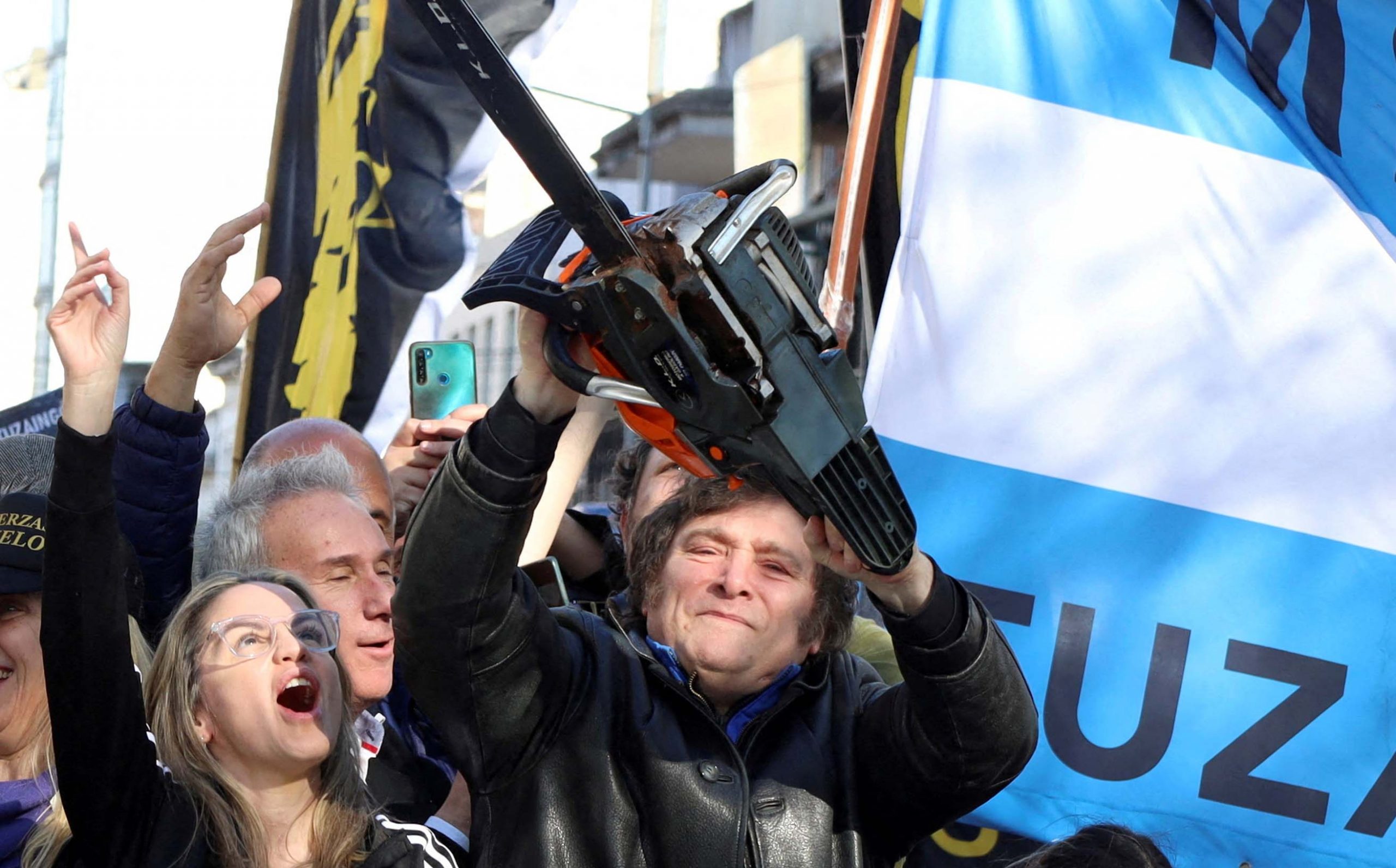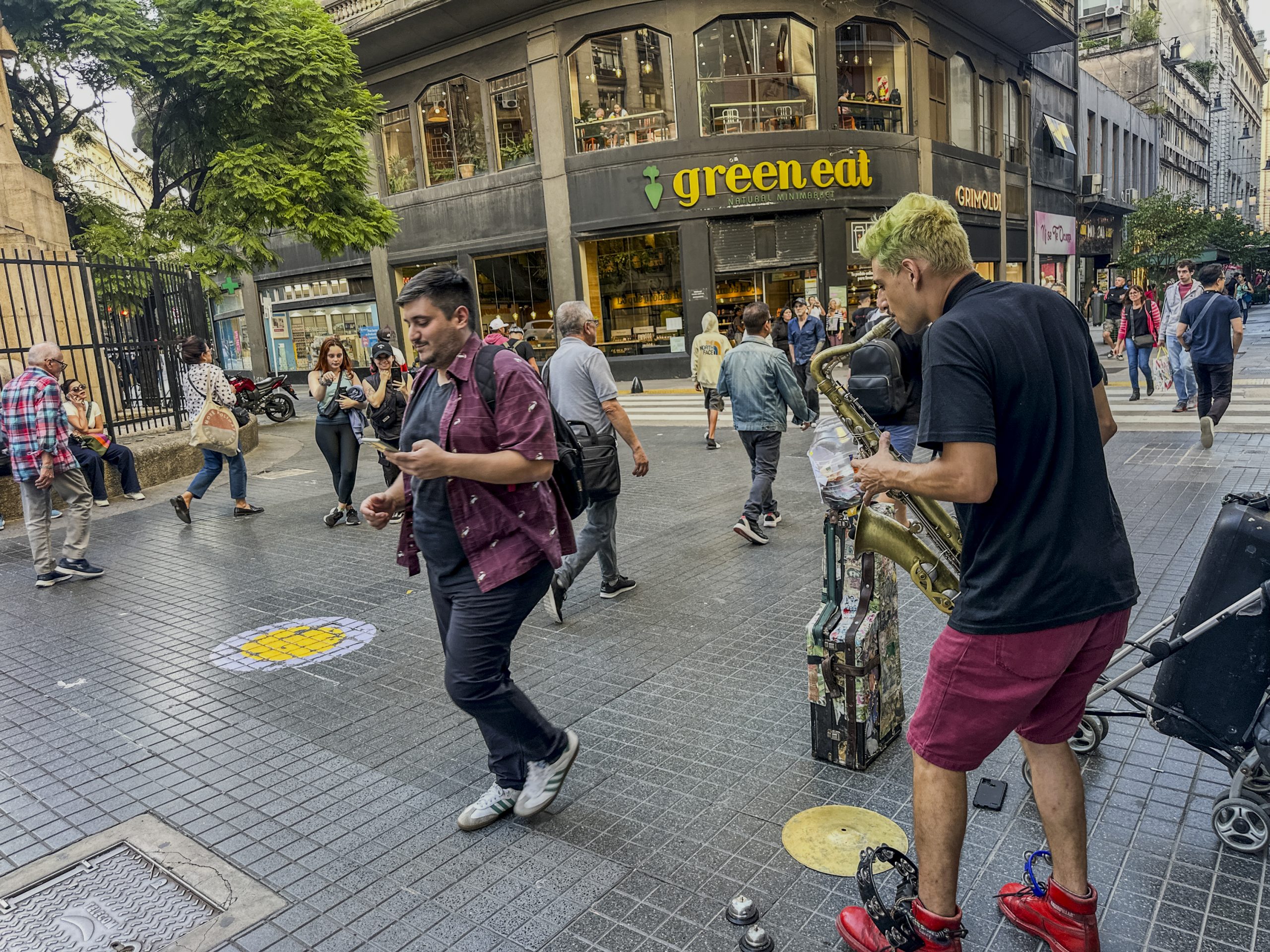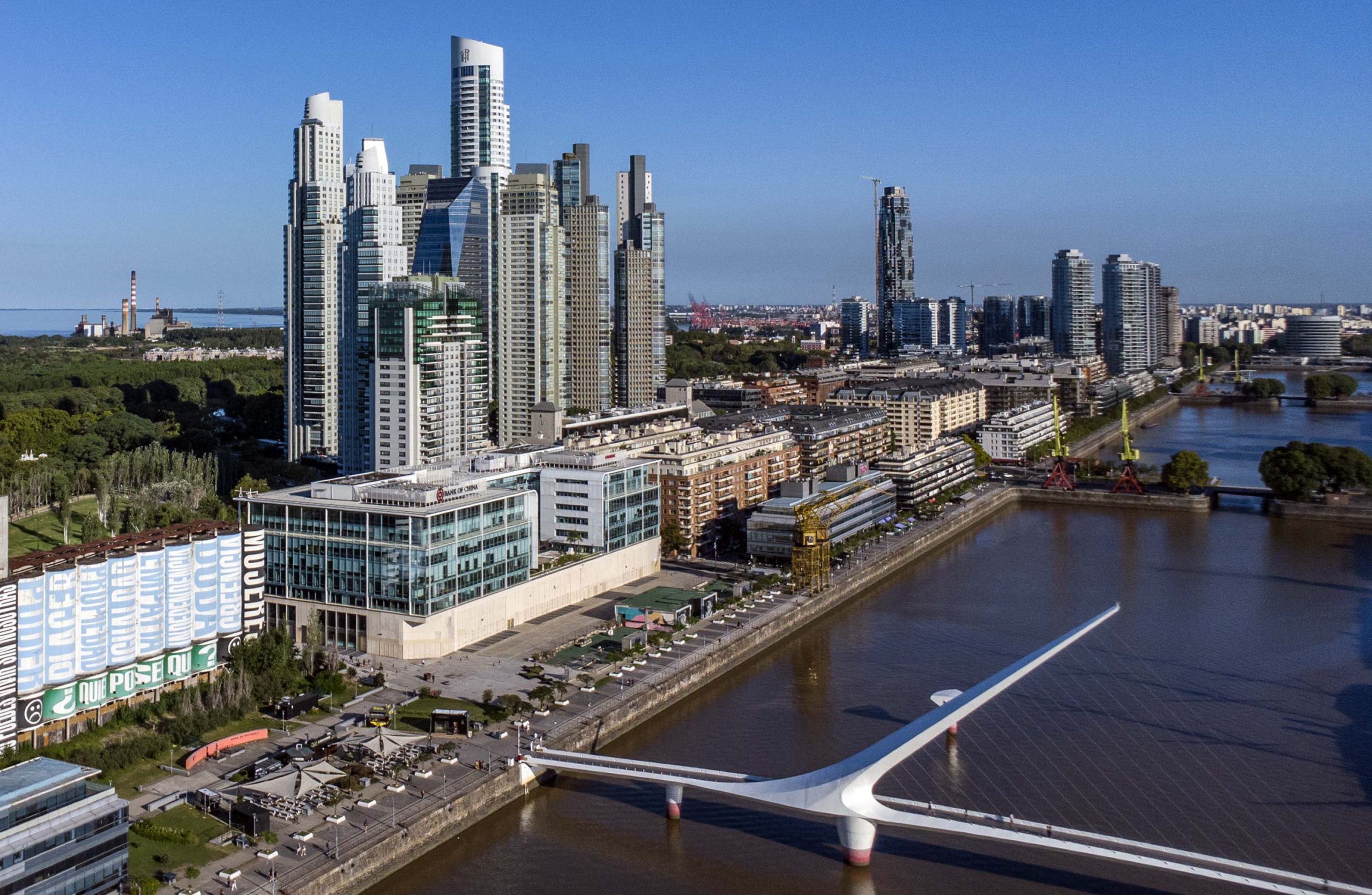Special Series (1):
How Argentina Was Saved by ‘Chainsaw Reform’

BUENOS AIRES, Argentina — Argentina is a stark mirror for South Korea, which will soon elect a new president. It shows how the choice of a leader can either push a nation deeper into crisis or help it recover.
Once known for its chronic populism, repeated defaults, and frequent trips to the International Monetary Fund (IMF), Argentina is no longer the same country. Since Javier Milei took office in December 2023, it has undergone sweeping libertarian reforms.
These reforms center on deep spending cuts and widespread deregulation. Subsidies and welfare spending, previously handed out by populist governments, were halted. The number of ministries was cut from 18 to 8, and 42,000 civil servants were dismissed. Milei eliminated about two regulations a day. Even the Trump administration’s creation of the Department of Government Efficiency (DOGE) was inspired by Milei’s reforms.
As a result, Argentina’s long-standing economic problems are improving fast. Inflation, which was at 25% per month at the end of 2023, has dropped to 2–3% on May. The government posted its first fiscal surplus in 14 years. Growth is expected to reach 5.5% this year. The peso, once mocked as “Polish government-in-exile currency,” has strengthened sharply. Foreign investment is returning, with Bank of America (BOA) now advising investors to “sell dollars and buy pesos.”
This is the first time a Korean American media outlet has reported on Argentina’s on-the-ground transformation as it tries to break away from populism and head in a new direction.
Populism Surgery Stabilizes Prices and Spurs Growth
Milei’s ‘Chainsaw Reform’ Revives Argentina – Part 1
- 30% reduction in public spending, 42,000 civil servants dismissed
- Inflation down from 25.5% monthly to near 1%
- Economy recovering from Peronist quagmire

Florida Street in Buenos Aires, crowded with tourists, is similar to Broadway Street in downtown Los Angeles. It is packed with shopping malls, souvenir shops, restaurants, and hotels. Visitors still encounter people loudly shouting “Cambio” (exchange) — black market currency dealers.
Yet few tourists engage with them now. The gap between the black market dollar rate and the official rate, once huge, had narrowed to about 25% by late 2023. Since late April, there have even been days when black market dollars were cheaper. On May 21, the official rate was 1,160 pesos per dollar, while the black market rate was 1,175 pesos.
These black market dealers rely on foreign exchange controls to operate. As currency flows improve and the market stabilizes, the need for them has dropped. The idle ‘Cambio’ dealers along Florida Street reflect Argentina’s shift from controls to openness, from instability to stability.
Locals call this the “Milei Effect,” the result of President Javier Milei’s consistent libertarian reforms.
Milei’s logic is straightforward: welfare and subsidies led to fiscal ruin and hyperinflation. To fix this, austerity was inevitable, non-negotiable. He pledged to cut everything — welfare, bloated bureaucracy, endless subsidies — with a chainsaw. Past governments used scissors as a reform symbol, but Milei’s roaring chainsaw sent a stronger message. Earlier this year, he presented a chainsaw to Elon Musk, who was then leading the DOGE.
Milei immediately slashed subsidies and welfare spending. He dramatically downsized the government, famously tearing ministry name tags off a board while shouting “¡Afuera! (Out!).” Over 15 months, he laid off 8.4% of all public servants, or 42,000 people. Overall, fiscal spending was cut by 30%. The central bank also stopped printing money to buy government bonds. Last month, the IMF announced $20 billion in support after recognizing the reforms’ progress.

Macro Indicators Show Rapid Improvement
In just over a year, key indicators have turned positive. Inflation is under control, growth is up, the peso is stronger, poverty is down, and the fiscal balance is in surplus. It’s like a person improving blood pressure, diabetes, and cholesterol all at once -through a brutal workout regimen.
The biggest success is price stability. In most countries, double-digit inflation over a year spells trouble. In Argentina, it happened every month — with jokes that pesos were more cost-effective than firewood for heating. Now, inflation is nearing 1% per month. Kang Tae-Min, head of logistics firm LK Global, who immigrated to Argentina in 1976, called the taming of inflation “a near miracle” given Argentina’s past.
However, stable inflation does not mean cheap prices. For foreigners, prices still feel high. According to the Economist’s Big Mac Index in early 2024, Argentina’s prices were about 20% higher than in the United States. At a gift shop on Florida Street, a Stanley tumbler was priced at 116,500 pesos, about $97 at the March 14 exchange rate, nearly three times the U.S. price. A Nike Vomero 17 was sold for 314,999 pesos ($262), $100 more than in the U.S. Given the minimum wage of $2.3 to $3.2 per hour, these prices are extremely high. Juan Nam, Director of KOTRA’s Buenos Aires office, said prices here are now higher than Madrid three years ago. Jeong-Ah Yu, a Counselor at the Korean Embassy in Argentina, said it feels similar to Geneva during her previous posting.
Growth and Jobs on the Rise

The economy returned to growth in the second half of 2023. While the IMF initially forecast -2.8% growth for 2024, the outlook improved to -1.7%, with a current projection of 5.5%. Liliana Franco, a columnist at the Buenos Aires Herald, said economists generally agree with the IMF’s projections and that growth could exceed expectations. César Litvin, CEO of accounting firm Lisicki Litvin& Abelovich, predicted similar growth for the following years.
After a decade of stagnation, this is a big shift. According to the National Institute of Statistics and Census (INDEC), the number of formal private sector workers in 2024 is 6.6 million, only 200,000 more than in 2013. With Argentina’s employment elasticity of 0.6, if the current pace continues over the next three years of Milei’s term, employment could grow by 3.3% annually, adding about 670,000 jobs, or 10%.
The poverty rate, which spiked briefly, has dropped sharply. The opposition accused Milei of worsening poverty when public sector layoffs surged. The poverty rate, measured by the share of households unable to cover basic living costs, peaked at 52.9% in mid-2023. It has since fallen to 38.1% thanks to stabilized prices and job recovery. Critics who argued libertarian reforms would deepen poverty have lost momentum.
Society Adjusting to New Reality
Homeless people are still seen on Buenos Aires streets, but some media reports exaggerate the crisis. In reality, the situation is far from Los Angeles, known for its large homeless population. There are many signs the economy is improving. Popular restaurants, despite U.S.-level prices, are hard to book. Weekend performances at Teatro Colón, the city’s municipal theater, are also packed.
Daily life is changing fast under deregulation. Housing has changed dramatically. The Milei government scrapped rent controls that capped rents and prevented evictions. These rules caused a housing shortage and soaring rents. California’s AB1482 and Los Angeles’ rent stabilization ordinance are similar. In less than a year, rental listings rose by 170%, and rents fell by 40%. When Kamala Harris, then a Democratic presidential candidate, proposed similar rent controls during the last election, the Wall Street Journal criticized her, citing Milei as a model example.

Business Climate Rebounding Fast
As the market rebounds, businesses are also moving more freely. Elio Del Re, chairman of the Association of Metallurgical Industrialists of the Republic of Argentina, said, “With the macroeconomy stabilized, predictability has returned, and openness is accelerating.” Customs clearance, certification, and payment processes have become much simpler. Where companies once submitted documents to the central bank and waited endlessly for import approvals, permits are now issued within 48 hours. Juan Nam added, “With trade payment restrictions eased, companies are welcoming the changes, and investment inquiries have surged.” Libertarianism is sowing seeds of hope in Argentina’s economy, long poisoned by populism.
🔎 Special Series: The Rise and Fall of Argentina’s Economy
- Part 1: How Argentina Was Saved by ‘Chainsaw Reform’
- Part 2: The Fall of a Developed Nation a Century Ago
- Part 3: [Coming Soon]
- Part 4: [Coming Soon]
- Part 5: [Coming Soon]
BY YOONHO NAHM [yhnam@koreadaily.com]
AND YEOL JANG [jang.yeol@koreadaily.com]



![At One-Year Mark, Korean Americans Rate Trump’s Second Term Poorly U.S. President Donald Trump gestures as he and Canada's Prime Minister Mark Carney, not pictured, meet in the Oval Office at the White House in Washington on Oct. 7. [REUTERS]](https://www.koreadailyus.com/wp-content/uploads/2025/10/1008-Trump-100x70.jpg)